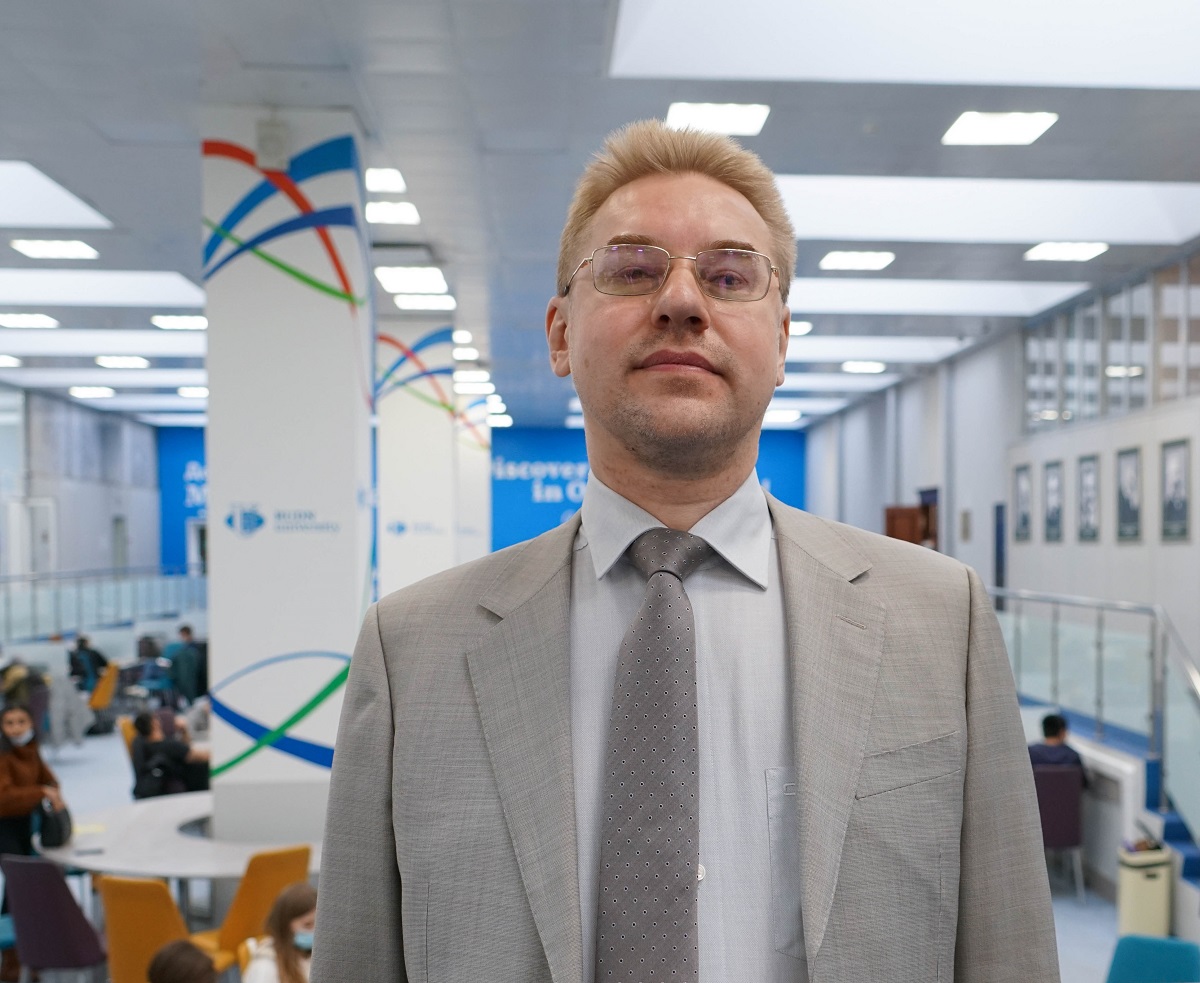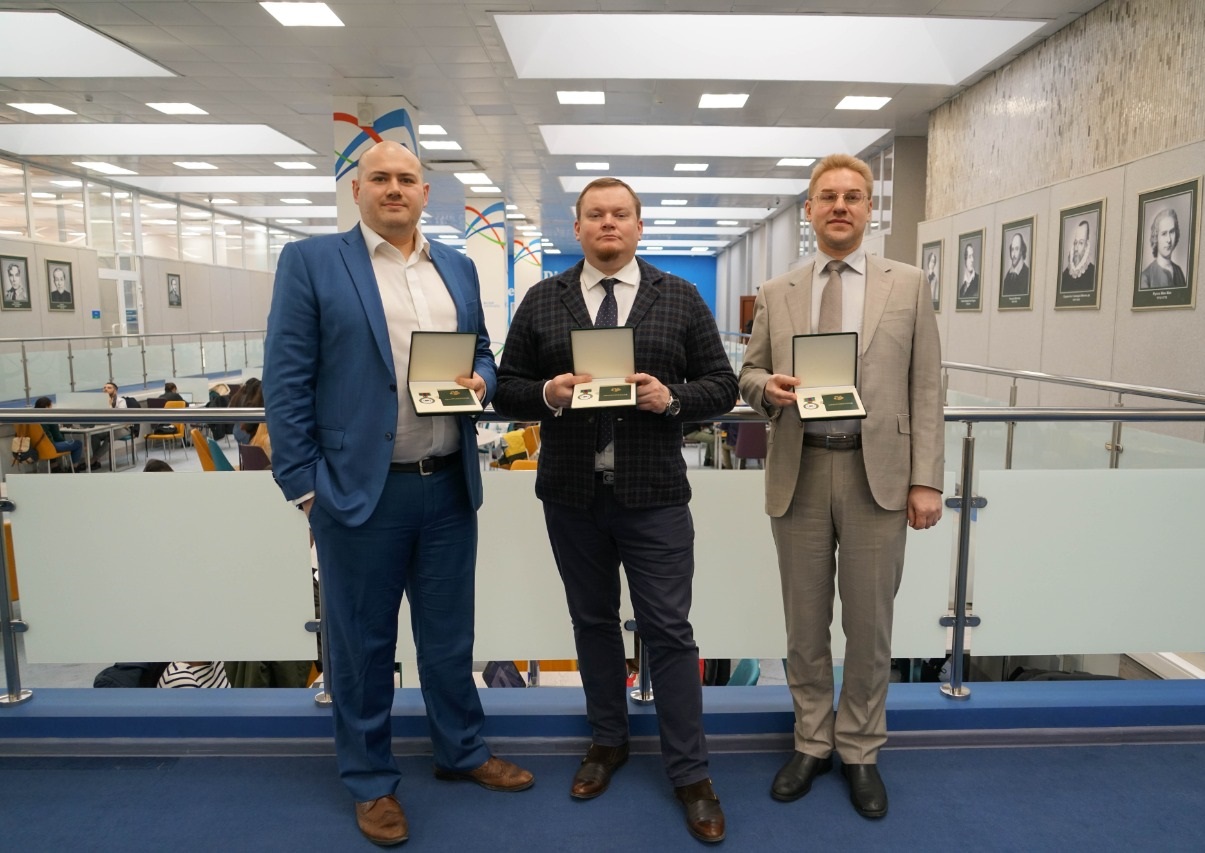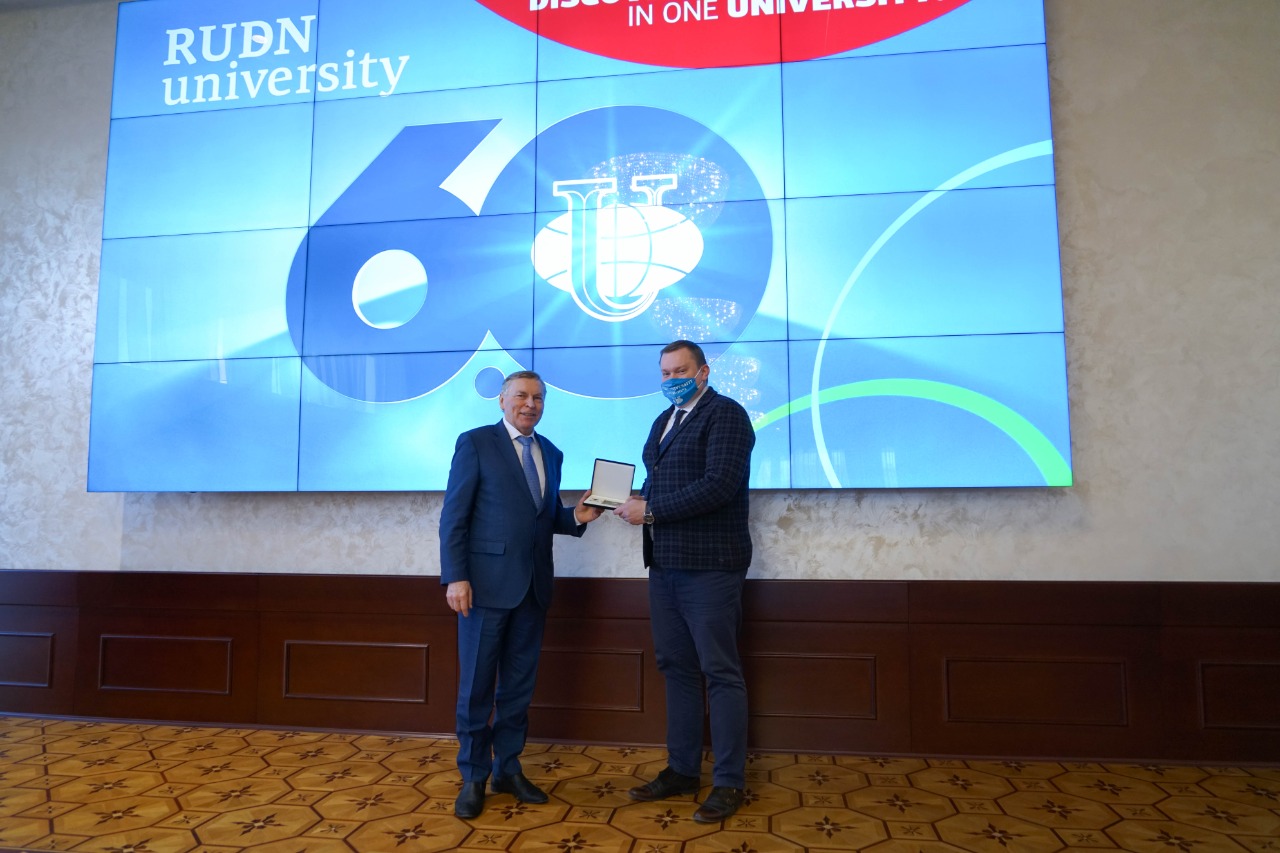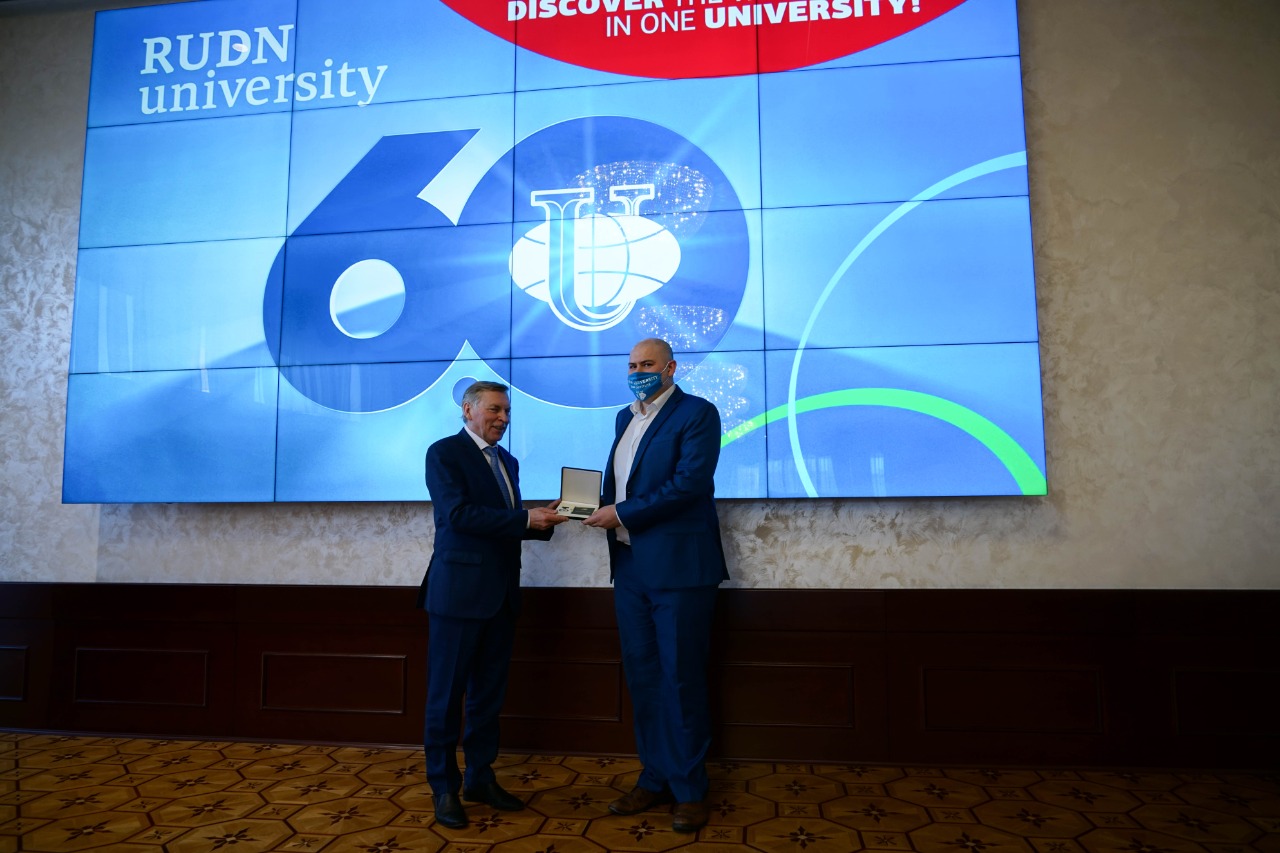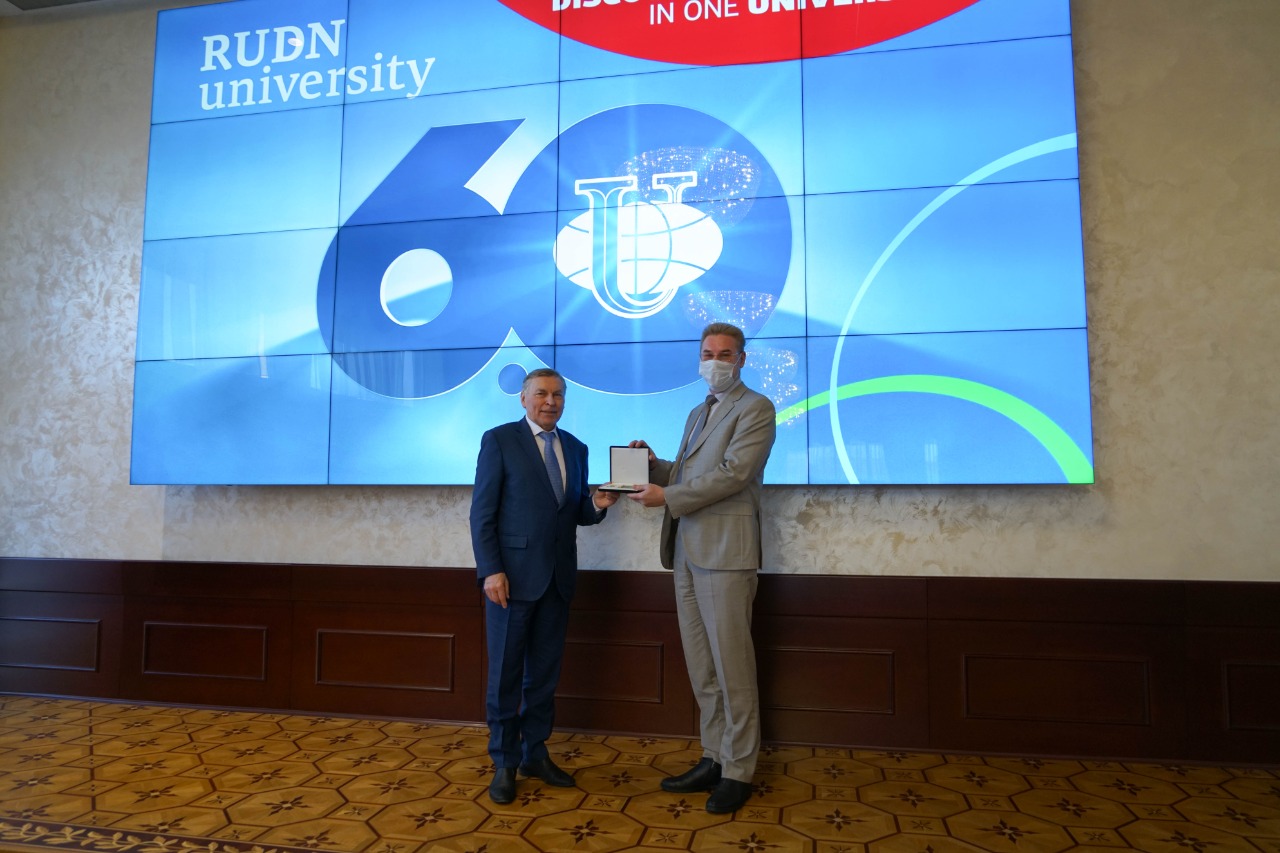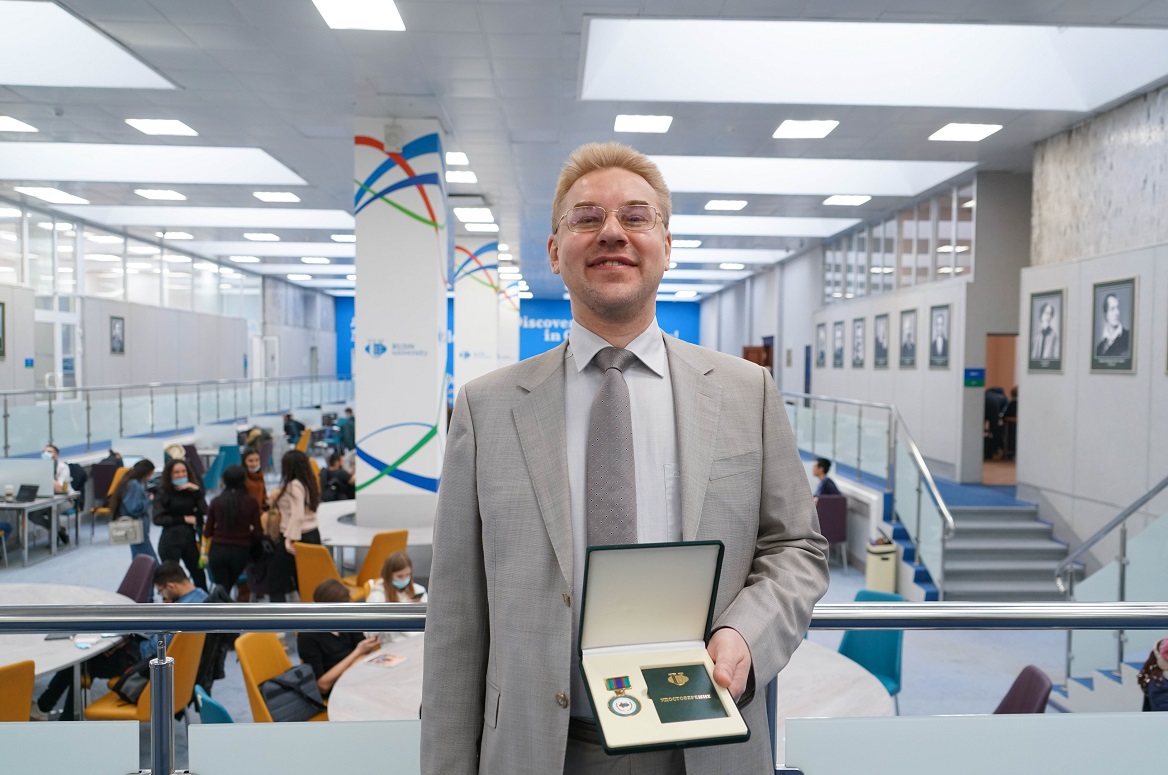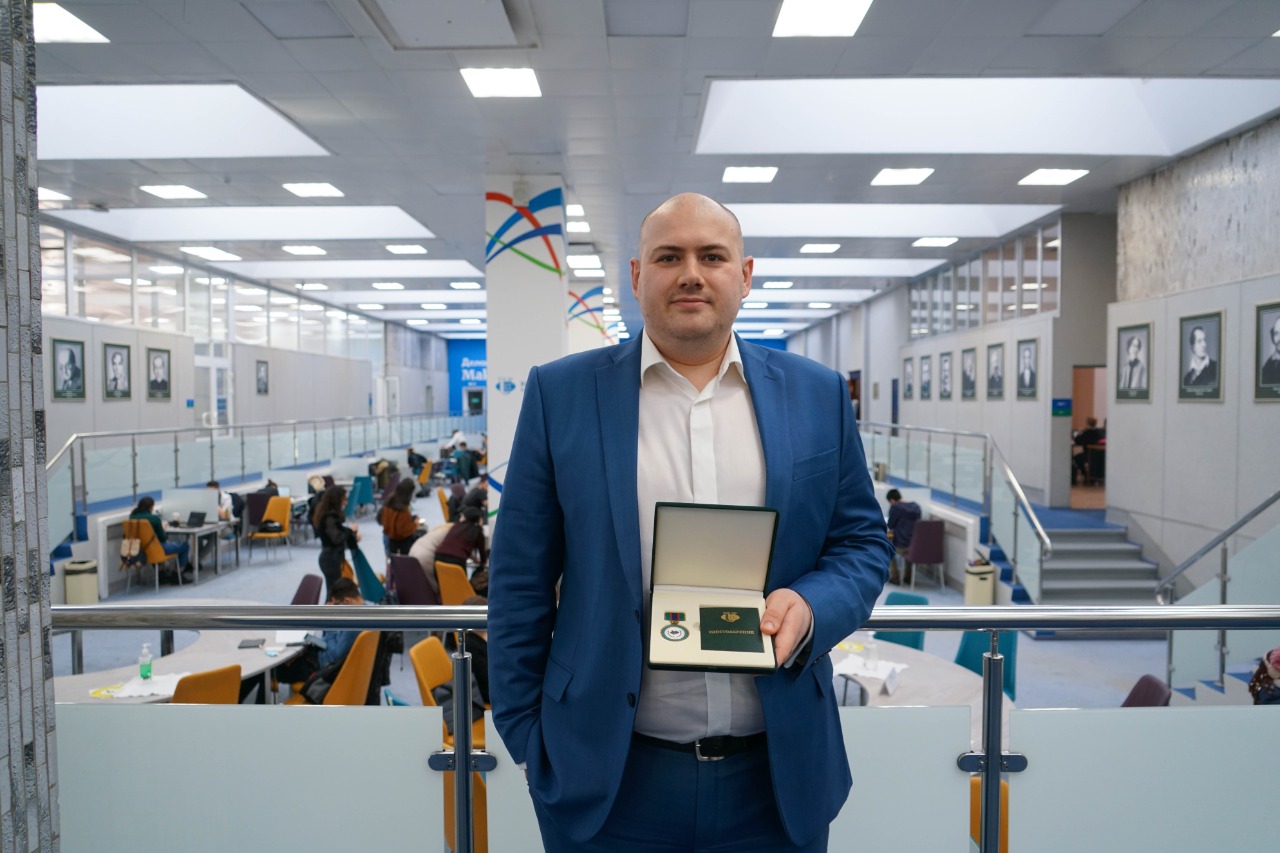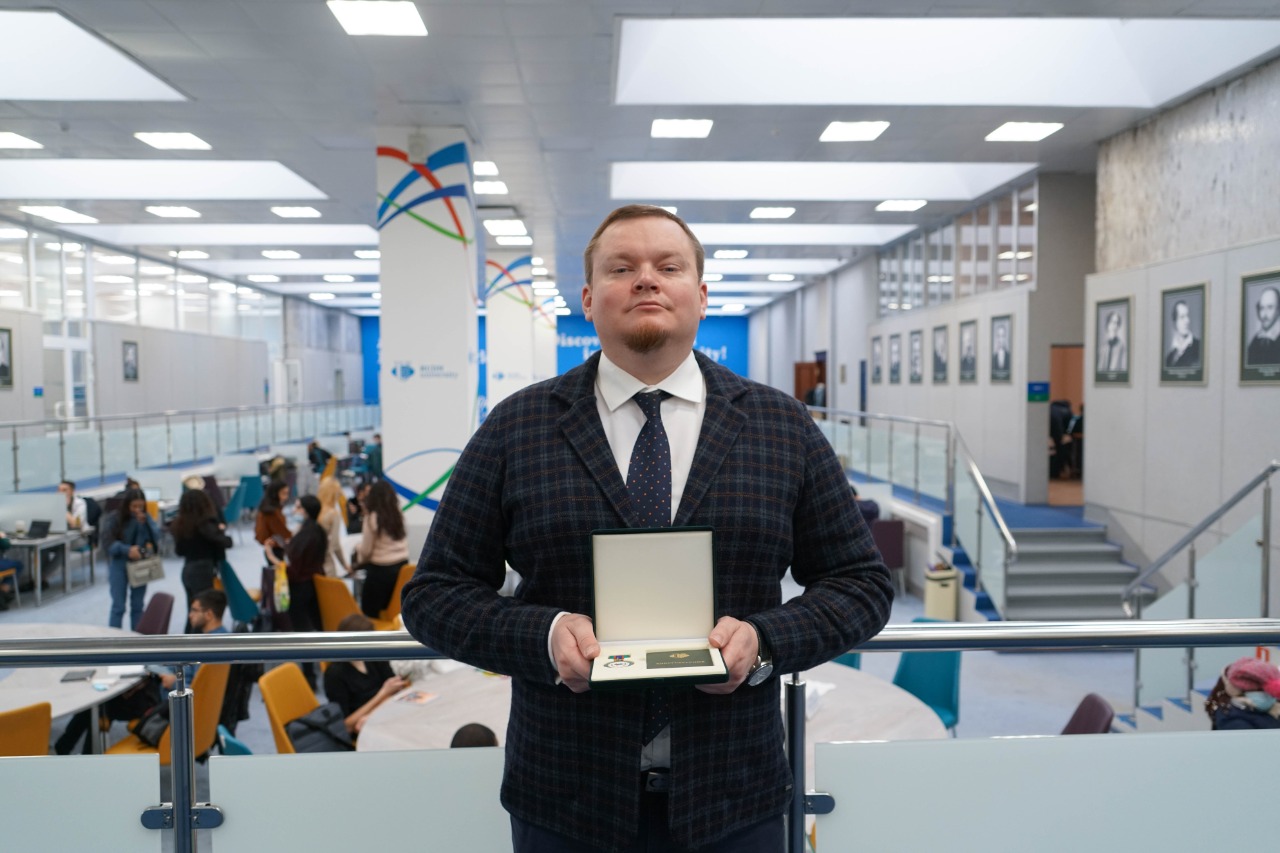Highest recognition of scientific merits to the university: congratulations to the winners of RUDN University prize in the field of science and innovation
Every year RUDN University chooses the best of the best in the field of science and innovation and gives them with a special award. Since 2009, the University Academic Board has been awarding one prize in natural and technical sciences and one in social and humanitarian sciences. Both individual researchers and groups of authors can become laureates.
This year PhD of physical, mathematical and natural sciences, associate professor of the Faculty of Science Fyodor Zubkov was recognized as the best in the field of natural and technical sciences.
Leaders in the field of social sciences and humanities — a team of authors of the Department of International Law:
- Aslan Abashidze, Doctor of Law, Professor;
- Alexander Solntsev, PhD in Law, Associate Professor;
- Denis Gugunsky, senior lecturer of the department.
Applicants for the award are assessed according to several criteria, among them: the number of publications in the scientific citation databases, the author’s monograph, citation rate, received patents / results of intellectual activity, and reviews of the applicant’s scientific works.
Aslan Abashidze, Alexander Solntsev, Denis Gugunsky
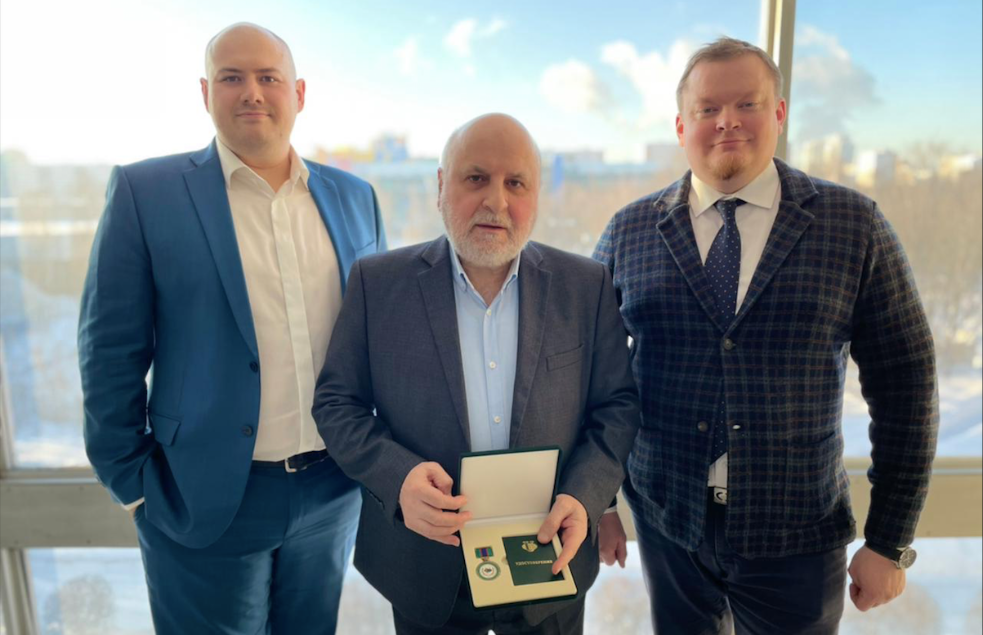
What is the latest research of your team devoted to?
In 2020, the team’s research focused primarily on the analysis of various aspects of international space law, international environmental law and human rights.
To be more precise, there is an acute problem of extraction and use of resources in space. We, as international lawyers, in order to avoid conflicts multiplication, call for the development of a single convention in this area, rather than creation of separate national legislations. Space is a field for cooperation, not competition, and international law can significantly help in this.
In terms of the study of international cooperation in combating climate change we see the need for a more thorough reflection in national law of international prescriptions for stricter decarbonization measures.
We would like to note that it is not easy for the humanitarian sciences to survive and develop in the 21st century. Of course, this award inspires further research, and the Department of International Law has big plans for the years to come.
Fyodor Zubkov
What is your latest scientific research devoted to?
To begin with, I would like to thank my colleagues: employees, postgraduate and graduate students of the Department of Organic Chemistry and employees of the Joint Institute for Chemical Research. Together we are working on targeted synthesis of nitrogen-containing heterocyclic compounds with various types of biological activity. Over the past 5 years, we have obtained results concerning synthesis of new classes of antiviral (active against the H1N1 influenza strain), antitumor and antibacterial molecules that are promising for further study.
One of the most significant discoveries of 2019-2020 is that we found antiviral activity in conjugates of natural (camphor, fenchone) and synthetic (isoindoles) subunits. Together with biochemists from Novosibirsk State University, we managed to patent unique formulas of drugs active against the deadly Hantaan orthohantavirus, one of the main causative agents of hemorrhagic fever with renal syndrome, which is common in Asia and the Asian part of the Russian Federation.
The research team conducts both applied and fundamental research — over the past 5 years we have won six grants from the Russian Science Foundation and the Russian Foundation for Basic Research. One of the key areas is the structure and activity of new catalysts.
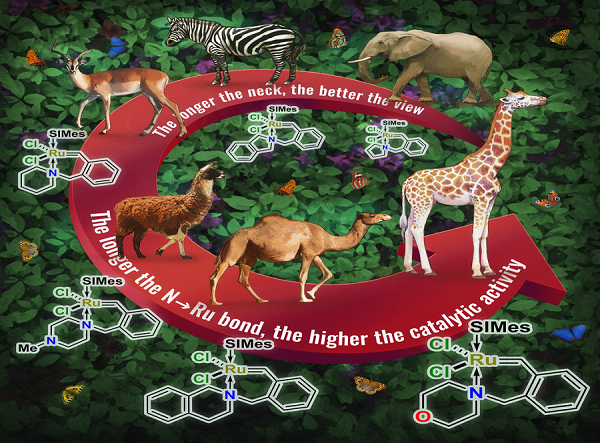
Illustration for the Organometallics journal: using the example of animals with different neck lengths, we showed that the longer the metal-heteroatom bond, the more active the catalyst
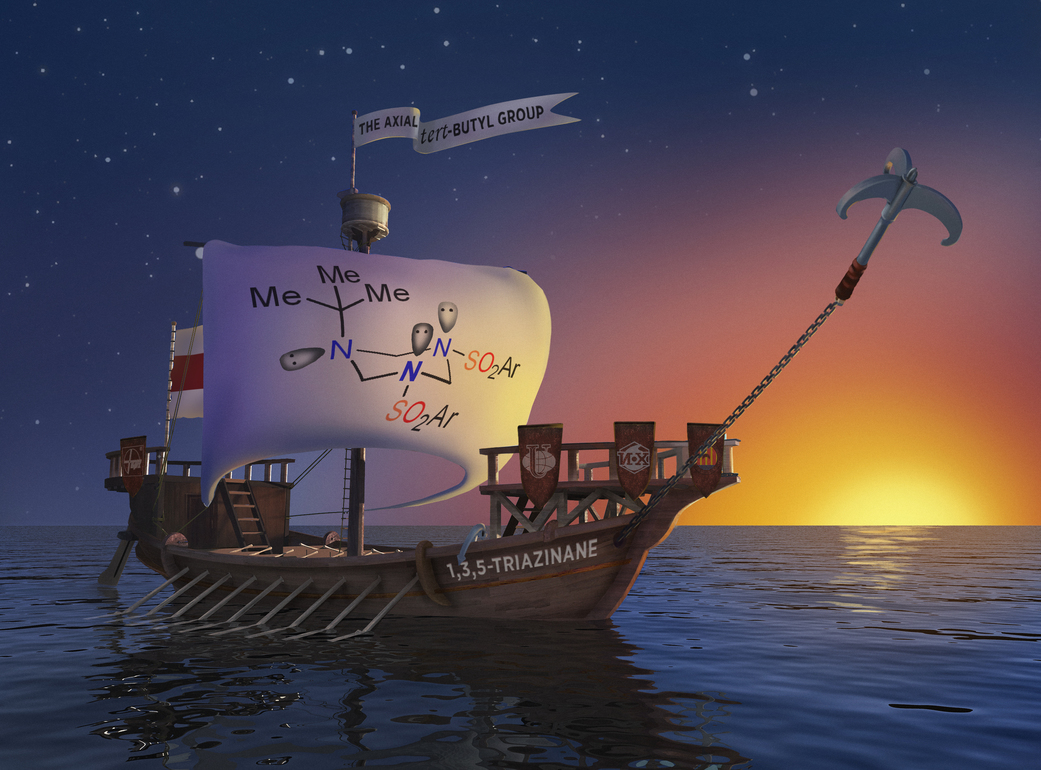
Illustration for the Organic and Biomolecular Chemistry journal: extremely unusual arrangement of the bulky tert-butyl substituent in some saturated six-membered rings. This can serve as a basis for the subsequent design of new materials with specified physicochemical properties.
Another direction is the search for new methods for obtaining little-studied natural compounds with high biological activity — terpenoids, alkaloids and macrolactones. As a result of research, we received grams of substances contained in natural sources in milligram quantities. This makes these compounds available for study.
Why is it worth doing science, and at RUDN University in particular?
The diversity of scientific research and the ability to carry out work in almost any area of chemistry attracts young scientists to research teams — the best students, and then postgraduate students. Students defending their Master’s qualification papers are already co-authors of three to five scientific articles, which, according to the rules of RUDN University, gives them an opportunity to immediately defend their Ph.D. thesis. By the time they graduate from university, they become qualified professionals who can work on ultra-class equipment, receive and describe the results of their work in the world’s best journals. RUDN University has one of the best material and technical, laboratory and instrumental facilities and resources in Russia. Our laboratories are not only safe but also pleasant to work in. It is here that the doors of the best foreign universities open for further postdoc training or work.
Products derived from microalgae represent a cutting-edge development in the field of bioeconomy. The potential of this biological resource was discussed at the international research seminar “Foundations for a Green Sustainable Energy”, part of the BRICS Network University’s thematic group on “Energy”. The event was organized by the Institute of Ecology at RUDN University.
Ambassadors of Russian education and science met at a conference in RUDN University to discuss how they can increase the visibility of Russian universities and research organizations in the world, and attract more international students in Russia.
The international scientific seminar hosted by RUDN Institute of Ecology “Experience of participation in student organizations as a way to form career skills” united scholarship recipients of the International Student Mobility Awards 2024 and Open Doors, along with members of the scientific student society “GreenLab” and the professional student association “Kostyor (Bonfire)” shared their projects focused on environmental protection.
